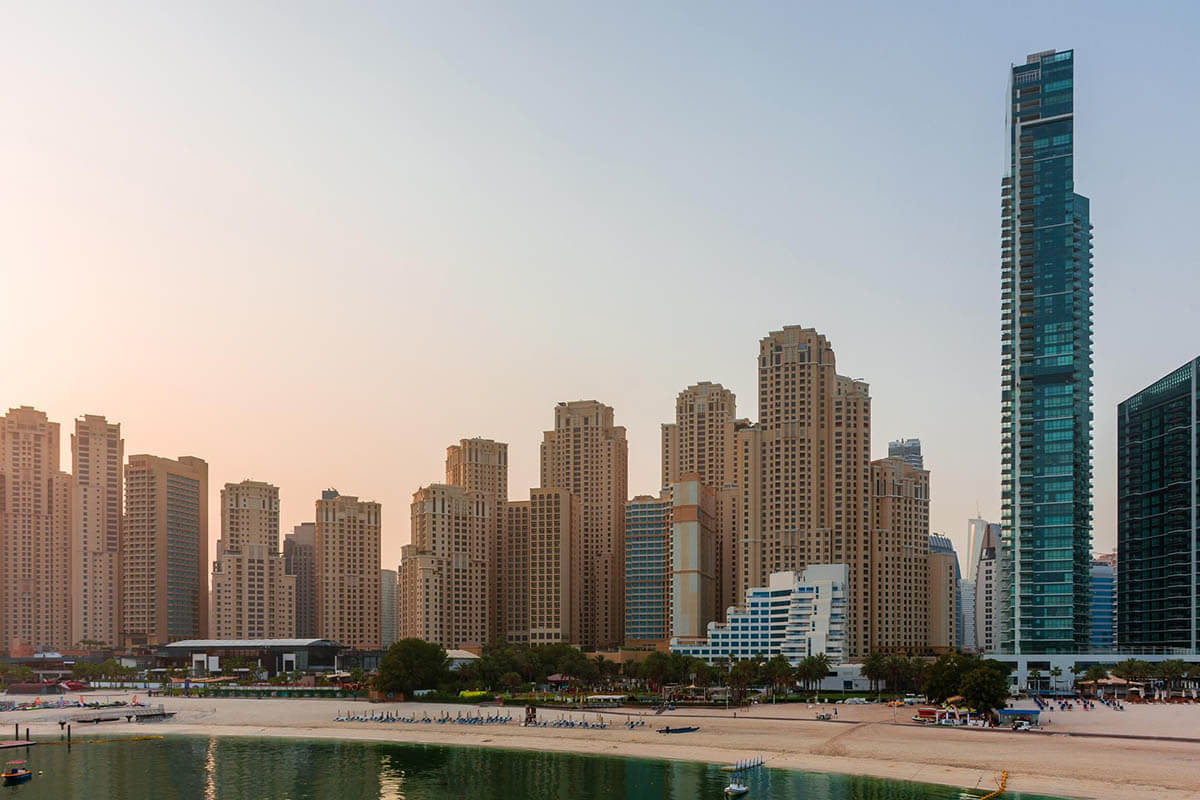
The population of Dubai has been more than 3.5 million people since the beginning of 2023, and according to various sources, only 10–20% live in their own residences. Everyone else rents property in Dubai. However, this does not lead to chaos, as long as everything about renting, including contract templates as well as rights and obligations of landlords and tenants, is strictly regulated by law.
Content:
- How short-term rentals work
- Who regulates leases
- Who can rent and lease property
- How to conclude a long-term tenancy contract
- How to terminate a long-term tenancy contract
- Restrictions on rent growth
- How disputes between parties are resolved
How short-term rentals work
There are two different laws in the Emirates that govern long- and short-term rentals. Renting out property for less than a year requires a special holiday home permit, so this is done exclusively by real estate agents.
It makes no sense to delve into the legal nuances of this type of rental. After all, the only thing that owners who want to rent out property for a short period of time need to do is to conclude an agreement with a property management company.
Who regulates leases
Issues related to living in rented residences in the UAE are regulated by the Dubai Real Estate Regulatory Agency. It is part of the Land Department.
In the UAE, you can contact government agencies in person, through the Agency’s website or the Dubai REST application. Requesting services via the internet will be more cost-efficient. For example, when registering a contract remotely, the amount payable will be less than when applying in person at the office.
Who can rent and lease property
The main provisions on leased property are regulated by Law No. 26 of 2007. According to it, foreign citizens who own property in the country can rent it out under the same terms as citizens of the UAE. Since there is no real estate or income tax, such owners do not have new obligations regarding residence or tax residency.
However, the tenant is required to have a residence permit in the UAE in order to enter into a long-term contract.

How to conclude a long-term tenancy contract
To make the transaction process easier, the authorities created a contract template that can be downloaded from the DLD website or the app. It’s a standard contract that should be read before signing. If necessary, it can specify additional conditions, for example, whether the landlord may visit the property. If this is not specified, then the landlord may not enter the residence during the term of the contract.
When concluding a written contract, parties should pay special attention to such details as:
- rent amount
- termination procedure
- renewal procedure
- utility bills
- responsibility for repairs
When signing the documents, the tenant is obliged to pay rent upfront for at least a year. In the absence of other agreements, the tenant also pays the state housing fee of about 5%. In addition, the landlord takes another 5% as an insurance deposit. This amount is used by the investor to cover possible expenses and is returned to the tenant at the end of the contract if everything is alright. In case of breakdowns, the landlord can compensate for the damage using this amount. We should note that living in a residence involves natural wear and tear of a house or apartment in Dubai, in which case the landlord may not withhold the deposit.
Once the written contract has been concluded, it must be registered in the Ejari system. This is important because the document comes into force only after registration. Without submitting the information to the government, the parties will not be able to count on assistance in resolving problems, so it is better not to delay registration. The tenant is usually responsible for submitting the documents, for this they will need a copy of the landlord’s ID, the title deed, and property details.
How to terminate a long-term tenancy contract
The law provides for the following options for terminating a tenancy contract:
- expiration of the lease
- early termination of the contract
In the first case, if the document has expired and the parties do not intend to renew it, the landlord returns the insurance deposit to the tenant, and they move out.
If the investor or tenant decides to terminate the contract, the other party must be notified 90 days in advance.
Suppose the contract has expired, but the property is still rented. Then it is necessary to conclude a new contract and register it again in the Ejari system.

Restrictions on rent growth
The UAE government regulates all matters related to property rentals, including the amount that can be gained and its increase.
First, the landlord may not change the amount of rent within two years from the date of the initial conclusion of the contract. In the future, if the landlord wants to increase the price, they must agree on this with the tenant 90 days before the price increase.
Second, the cost of rent should be set at the market level. To estimate it, you can use the calculator on the website or in the application of the Dubai Real Estate Regulatory Agency.
Third, the government monitors the growth of the market prices of properties, setting distinct boundaries: in what cases an investor may raise the rate and by how much.
For example, if the difference between the market rent and your current rent is less than 10%, then you are not allowed to increase your rent. In cases where the market price is greater than your current rate, the price can be raised, but only partially. For instance, if the rent of a villa in Dubai is $100,000 per year, but you can rent similar housing for $120,000 this year, then the difference in price is 20%. In accordance with the law, the landlord may raise the cost by 10% in this case. Thus, the tenant will have to pay $110,000 or refuse the increase and move out.
How disputes between parties are resolved
Even though all rights and obligations are prescribed by law, disagreements can arise between landlords and tenants. These issues are settled by the Rent Disputes Settlement Center, which was established by Decree No. 26 of 2013.







































